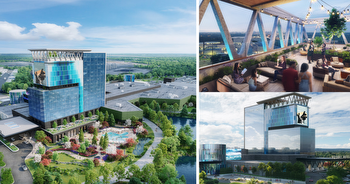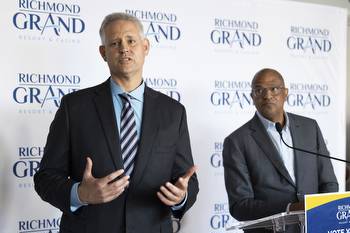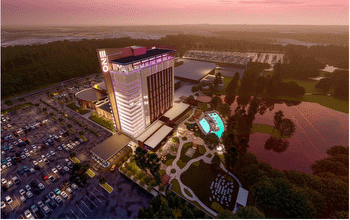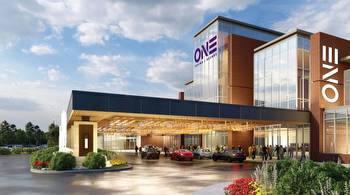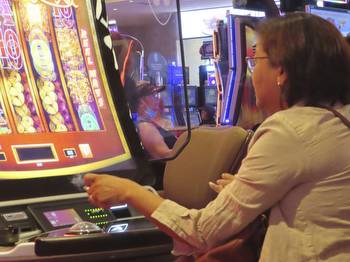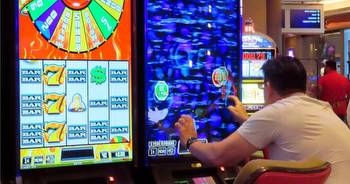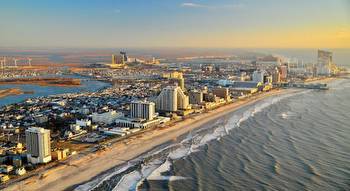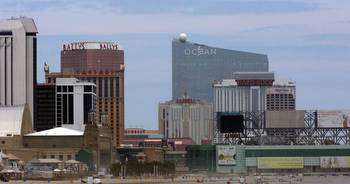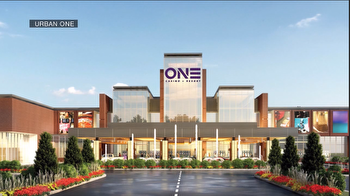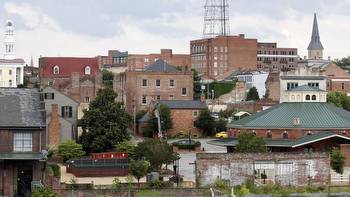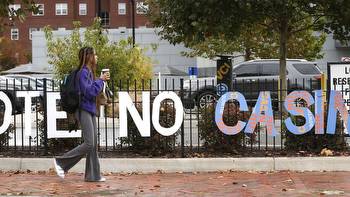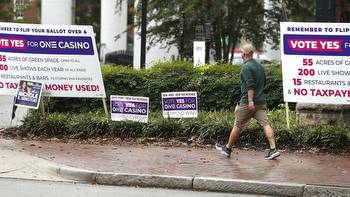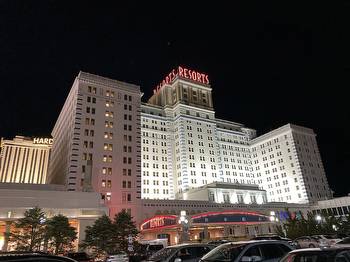How did the 1964 Democratic National Convention change Atlantic City?

ATLANTIC CITY — Nov. 2 marks the 40th anniversary of the vote that brought casinos to Atlantic City, a milestone that comes as a vote next month could bring more casinos to New Jersey.
But the seeds for casino gaming here were planted more than a decade before, in 1964, when the city hosted the Democratic National Convention at Boardwalk Hall.
Lyndon Johnson had already assumed the office of president after the assassination of John F. Kennedy, so his nomination was not in doubt. Instead, the visiting reporters focused on Atlantic City’s decay and the greed of the hotel owners.
That painful expose was a necessary step toward legalizing gambling, said Sharon Schulman, executive director of the William J. Hughes Center for Public Policy at Stockton University. The stories galvanized the movement that led to the historic 1976 referendum.
“They needed to create a new revenue stream that was going to allow Atlantic City to be a year-round resort instead of a summertime resort. And gaming is a year-round commodity,” Schulman said.
Atlantic City finds itself in a similar spot now. Four casinos closed in 2014. Trump Taj Mahal Casino Resort will close Monday. The tax base shrunk, and the state is threatening to take over government operations.
Meanwhile, a state ballot question asks voters on Nov. 8 whether allowing two casinos in North Jersey is the answer.
Voters are overwhelmingly opposed to North Jersey casinos, according to recent polling from …
The long view of legalized gambling in New Jersey shows casinos ushered in decades of prosperity for both Atlantic City and the tourism industry. From 1976 to 2008, the height of the casino industry in the resort, the value of the city’s property base grew by more than 6,750 percent, topping out at $20.5 billion in 2008.
But since 2008 and the introduction of casino gaming in neighboring states, the city has seen a 64 percent loss of value, leaving it on the brink of financial collapse.
Bryant Simon, a professor of history at Temple University and the author of “Boardwalk of Dreams: Atlantic City and the Fate of Urban America,” said casinos, wherever they’re built, have failed to rejuvenate cities.
“Essentially casinos are anti-urban institutions,” Simon said. “The point of casinos is to suck people in, take their money and then let them go. The casinos make it hard for people to find the Boardwalk, let alone Pacific Avenue. I don’t blame Atlantic City. What I find fascinating is that no one wants to learn from Atlantic City.”
Counting from that landmark 1964 Democratic convention, the process of bringing gaming to the resort took more than 12 years, two public referendums and a number of legislative hearings, many featuring impassioned pleas from local lawmakers.
“Atlantic City to me, and I think to most people in the country, is the show window for New Jersey. Our show window is in need of repairs,” 2nd District Assemblyman Howard Kupperman testified during an April 1976 hearing on the proposal.
In 1974, the first referendum introducing casino gaming to the state failed by a 60 percent to 40 percent margin. The referendum lost in 19 of 21 counties. That referendum lacked specifics about where New Jersey casinos would be located. The public question on the 1976 ballot, which succeeded, limited casinos to Atlantic City.
Two years later, Resorts Casino Hotel, the city’s first casino, opened.
If history is any indication, the defeat of a November ballot question on North Jersey casin…
The 1976 referendum also specified that the tax revenue raised through casino gambling would be used to finance new programs for senior citizens, said Michael Pollock, managing director of Spectrum Gaming Group.
“Thus, gambling proponents were able to neutralize fears of casinos in the middle-class suburbs of New York and Philadelphia while bringing a sizable voting bloc — the senior citizens — into the pro-gambling corner,” Pollock said.
In 1976, Nevada was the only state with legal casino gambling.
“The idea of casino gaming outside Nevada was unique back in the ’70s, a far cry from the regional “casino-ization” market we see across the country today,” said Robert Ambrose, an instructor at the Center for Hospitality and Sport Management at Drexel University. “A box with slots and a hotel was the norm in ’76, but today’s customers have embraced a more sophisticated presentation that includes more than just a casino.”
The ongoing debate about expanding casino gaming to North Jersey mirrors those in the 1970s. Opponents and some supporters of the current referendum have said there aren’t enough details, such as exact locations for the new casinos and the tax rates they would pay.
Polls have shown a lack of public support for expanding gambling beyond Atlantic City. Last month, a pro-North Jersey casino group dropped its marketing campaign.
Meanwhile, Atlantic City and County officials are pushing for a rebirth in the resort. A region that grew because of casinos is looking to expand its technology centers, wineries, academic campuses, residential development and transportation hubs.
In other words, anything but gambling.









